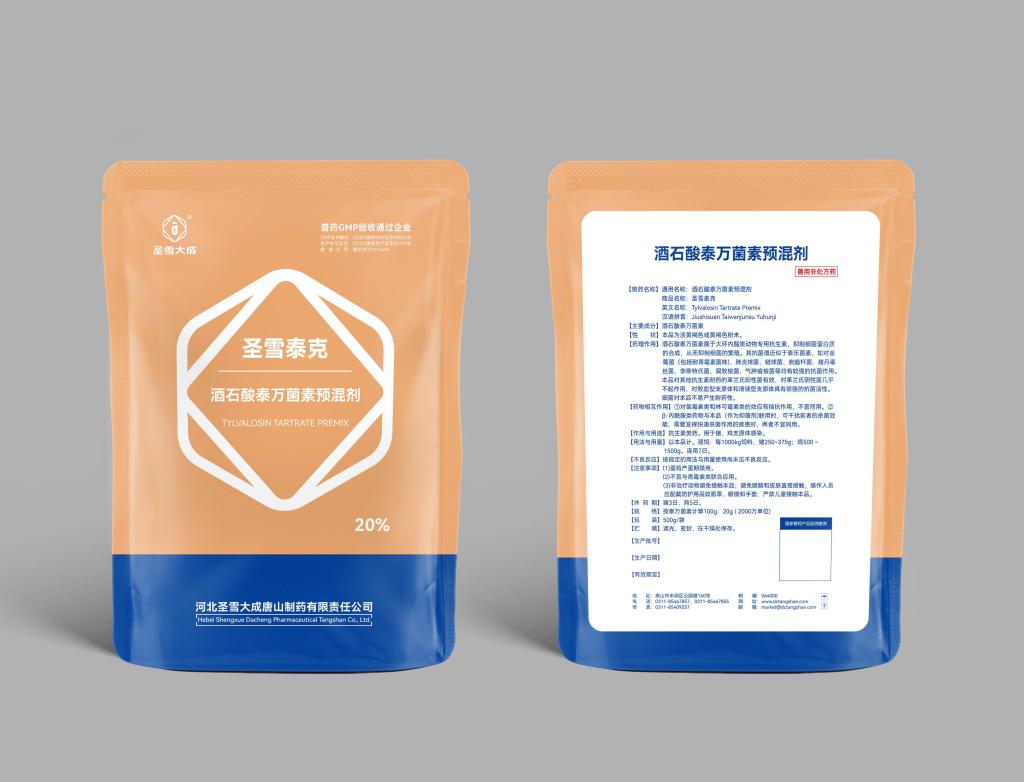Tel:+8618231198596

News
 CONTACT
CONTACT
 CONTACT
CONTACT
- Linkman:Linda Yao
- Tel: +8618231198596
- Email:linda.yao@dcpharma.cn
- Linkman:CHARLES.WANG
- Department:Overseas
- Tel: 0086 0311-85537378 0086 0311-85539701
News
Current Position:
Home >
News
>Tylvalosin tartrate premix contributes to sustainable farming practices.
Tylvalosin tartrate premix contributes to sustainable farming practices.
TIME:2024-07-08
Environmental stewardship: Practices that conserve natural resources, minimize pollution, and promote biodiversity.
Economic viability: Ensuring profitability and economic resilience for farmers and stakeholders.
Social responsibility: Upholding animal welfare, ensuring food safety, and supporting local communities.
The Role of Tylvalosin Tartrate Premix in Sustainable Agriculture
Tylvalosin tartrate premix contributes to sustainable agriculture in several ways:
Improving Animal Health and Welfare:
Respiratory diseases, such as those caused by Mycoplasma spp., are common challenges in livestock production. Tylvalosin tartrate effectively treats and prevents these diseases, thereby reducing animal suffering and enhancing overall welfare. Healthy animals are more resilient to stress and disease, leading to improved productivity and reduced need for therapeutic interventions.
Enhancing Feed Efficiency and Growth:
By promoting respiratory health and preventing infections, tylvalosin tartrate premix supports optimal feed efficiency and growth rates in livestock. Animals utilize nutrients more efficiently, resulting in reduced feed requirements per unit of production. This efficiency not only improves profitability for farmers but also reduces environmental impacts associated with feed production and waste.
Reducing Environmental Footprint:
Sustainable farming practices emphasize minimizing environmental footprint. By helping to maintain healthy animals with fewer disease outbreaks, tylvalosin tartrate premix reduces the need for intensive treatments and antibiotics. This can lower the potential for antibiotic residues in the environment and contribute to cleaner water, soil, and air quality on farms.
Supporting Responsible Antibiotic Use:
Antibiotic resistance is a global concern. Tylvalosin tartrate premix is used judiciously under veterinary supervision to treat specific bacterial infections in livestock. Responsible use practices include proper dosage, adherence to withdrawal periods, and compliance with regulatory guidelines. By preventing disease and reducing the spread of resistant bacteria, tylvalosin tartrate supports sustainable antibiotic stewardship.
Applications in Different Livestock Sectors
Tylvalosin tartrate premix is widely used across various sectors of livestock production:
Poultry Farming: Effective against Mycoplasma infections in poultry, tylvalosin tartrate helps maintain respiratory health in broilers and layers, contributing to sustainable production practices by reducing disease-related losses and improving flock performance.
Swine Production: Used to control respiratory diseases like enzootic pneumonia caused by Mycoplasma hyopneumoniae, tylvalosin tartrate enhances growth rates and feed efficiency in pigs, promoting sustainable pig farming practices.
Cattle Feedlots: In feedlot operations, tylvalosin tartrate helps manage bovine respiratory disease complex (BRDC), a major cause of economic losses and animal welfare concerns. By reducing the incidence and severity of BRDC, the premix supports sustainable beef production by improving cattle health and performance.
Challenges and Considerations
While tylvalosin tartrate premix offers significant benefits for sustainable farming, challenges and considerations include:
Regulatory Compliance: Compliance with local and international regulations governing antibiotic use in livestock production is essential to ensure food safety and maintain consumer confidence.
Research and Development: Continued research is necessary to optimize the use of tylvalosin tartrate premix, develop alternative treatments, and improve sustainability practices in livestock farming.
Public Perception: Addressing consumer concerns about antibiotic use in agriculture requires transparency, education, and communication about responsible use practices and their role in sustainable farming.
Conclusion
Tylvalosin tartrate premix plays a crucial role in sustainable farming practices by promoting animal health, enhancing productivity, and supporting responsible antibiotic use in livestock production. Its broad-spectrum activity against respiratory pathogens contributes to reduced disease incidence, improved feed efficiency, and minimized environmental impact on farms. As agriculture evolves to meet global food demands sustainably, tylvalosin tartrate remains a valuable tool for farmers seeking to balance economic viability with environmental and social responsibility. By integrating science-based practices and regulatory compliance, livestock producers can maximize the benefits of tylvalosin tartrate premix while advancing sustainable agriculture for future generations.
- Tel:+8618231198596
- Whatsapp:18231198596
- Chat With Skype







